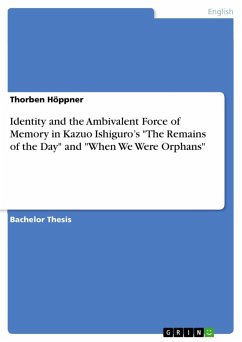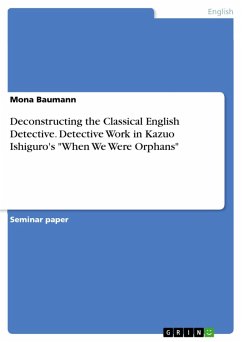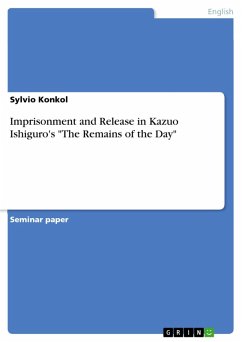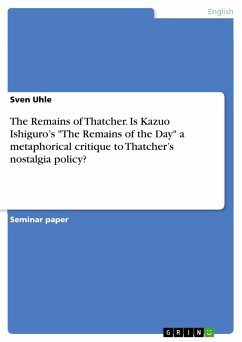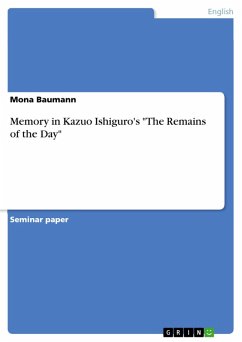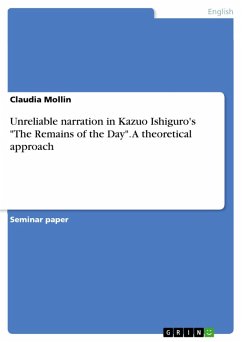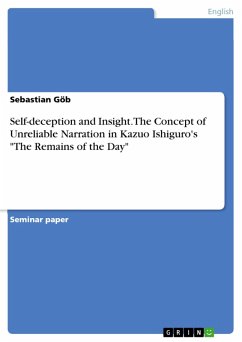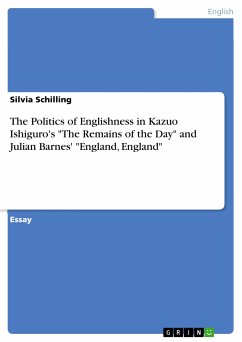Bachelor Thesis from the year 2021 in the subject English Language and Literature Studies - Literature, grade: 1,0, Carl von Ossietzky University of Oldenburg, language: English, abstract: This thesis draws on the notion that identity - our sense of self - and the ways in which we remember ourselves are strongly interrelated to discuss two novels of an author who is well accustomed to writing what he himself has, in a 1989 interview with Gregory Mason, called "the texture of memory": Kazuo Ishiguro. In discussing two of Ishiguro's novels, The Remains of the Day and When We Were Orphans, this thesis will address the ambivalent forces of memory in more detail and examine how personal memory and personal identity are, in the two chosen texts, conceptualised interdependently. In doing so, this thesis furthermore analyses the specific literary functionalisation of the concepts of memory, which the two chosen texts provide us with. However, the theme of memory and identity must not be dealt with as a stand-alone subject in the two chosen texts; it rather has to be examined in the context of other discourses that are related to it. In both novels, identity is built on certain ideals which are, over the course of the two novels, subverted along with the respective identities themselves. Consequently, this thesis will relate its main research interest, the interdependence between memory and identity, to such other discourses which, in the two selected texts, are crucial to acquiring an understanding of the exact nature of the interdependence in question: discourses on individuality, trauma, self-deception, selfdelusion, self-reflection, nostalgia, and idealism. Having awarded Kazuo Ishiguro with the 2017 Nobel Prize in Literature, the Nobel Committee explained its choice in a press release, stating that Ishiguro, "in novels of great emotional force, has uncovered the abyss beneath our illusory sense of connection with the world." In his novels, Ishiguro explores this illusory sense of connectedness through the eyes of characters that are confronted with the fragile forces of their very own memories. It is these characters, caught between remembrance and oblivion, between trauma and nostalgia for an irretrievable past, through which Ishiguro unmasks the illusory essence not only of our sense of connection with the world, but also of our sense of self. In an opening remark on the British Council's official profile of Kazuo Ishiguro, James Procter fittingly states that "Ishiguro's novels are preoccupied by memories, their potential to digress and distort, to forget and to silence, and, above all, to haunt."
Dieser Download kann aus rechtlichen Gründen nur mit Rechnungsadresse in A, B, BG, CY, CZ, D, DK, EW, E, FIN, F, GR, HR, H, IRL, I, LT, L, LR, M, NL, PL, P, R, S, SLO, SK ausgeliefert werden.

